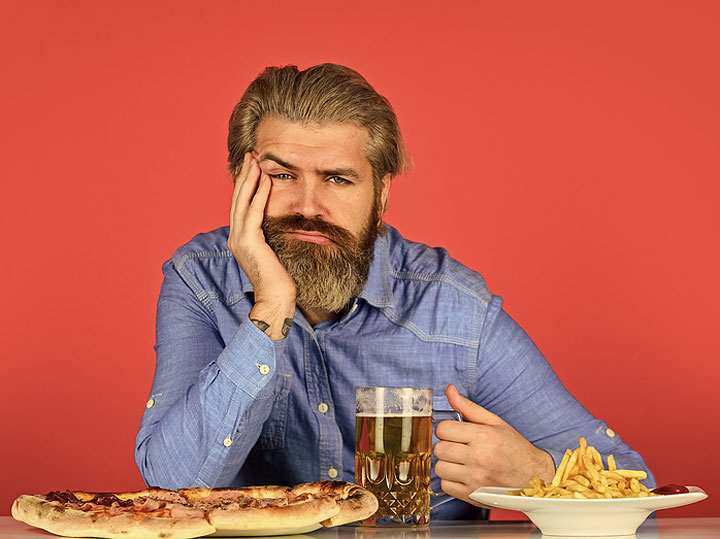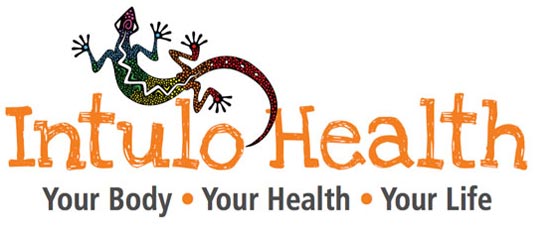Is your lifestyle driving your health issues?
 Here are some interesting facts about how your body processes what you are eating
Here are some interesting facts about how your body processes what you are eating
When you are eating and how much you are eating, and how the complexity of your HORMONES are the driver for all your health issues ...
Why do we eat?
No prizes for this… we eat because we’re hungry. But why are we hungry? Natural hunger is the body’s way of telling us to obtain energy to fuel our physiological functions. It’s one of the basic drives we have from birth, we instinctively have to breathe, eat, sleep and be nurtured.
A region of the brain called the appestat controls appetite. This is roughly how appetite and hunger work in conjunction with it. When blood-sugar and/or nutrient levels fall below a certain point messages are sent to the appestat. The appestat sends signals for the body to secrete certain hormones, the hormones make us feel hungry so we eat and once we’ve eaten enough, the process reverses and we feel full. It seems simple, but there is a complex balance of hormones that your appestat must manage to get this right.
So what are you hungry for?
As we grow older the appestat and the body’s hormone levels can be affected by many other factors. The most notorious culprit, is the modern sugar-and-carb-laden Western diet, which promotes insulin resistance. In so doing, it “hijacks” the appestat into not recognising when we’ve taken in enough fuel, we don’t feel full so we eat more than we need and the excess food is stored as body fat. The understanding of this mechanism is at the core of MY own personal movement away from destructive high-carb foods towards a happier and healthier lifestyle.
I may be preaching to the choir here, but there is also a large psychological aspect to eating and drinking, and we often eat for reasons besides hunger. We often eat as a coping tool to deal with sadness, stress or anger. Any situations that feel beyond our control are likely to stimulate stress hormones that can upset the delicate hormonal balance within the body and affect the appestat. Ever taken comfort in a large chocolate when you were feeling down? Ever “needed” a glass or two of wine at the end of a stressful day? Ever eaten that sandwich just because you were bored or procrastinating?
Our bodies are designed for a simpler, more instinctive existence. In this fast paced world we encounter situations on a daily basis that can throw our systems out of sync and encourage us to eat when, functionally, we don’t need to! It’s simple …. Feel right, eat right!
When our relationship with food is a healthy one, we don’t obsess about it. We leave enough time between meals for our food to digest correctly and for all of our metabolic processes to receive the fuel they need to function correctly. We don’t feel the need to snack and our bodies are happy. In short, we feel right so we eat right.
When we don’t feel right, we tend to eat badly. (Got Sunday blues? Order a pizza!). The powerful emotions associated with food are one possible explanation for this phenomenon. Memories of home, family, childhood, special occasions, safety, protection, abundance and giving are all often linked with food, and so food can become a nurturing crutch.
Comfort eating is a real phenomenon and it can be triggered by many things in today’s fast-paced world. The good news is that it’s not just your mind, it’s your hormones. If your hormones are out of whack, they give your mind a hard run for its money. I personally have been struggling with my hormones and I’ve done extensive research on this subject to explain certain ups and downs of late!
So we have one body and one mind, but we have eight hormones swirling them both!
We have 8 Hormones that effect body weight! And yes gentleman you have them too!
The first four directly affect the appestat: Insulin – The one hormone I talk about A LOT and it controls blood-sugar levels and promotes fat accumulation (among other things)… Ghrelin – the hunger hormone, increases appetite Leptin – the satiety hormone; decreases appetite Adiponectin – regulates fatty acid breakdown; promotes fat retention
The second four indirectly affect the appestat (among other things) by affecting the previous four hormones:
Cortisol – the “stress hormone” released in response to stress, it raises blood-sugar and thus insulin levels so this is the most interesting of them all, but naturally if your Cortisol is raised and it spikes blood sugar and insulin, no amount of spinach juice consumption is going to drive down your weight down when you have this “bad boy” lurking! TRUST ME I KNOW THIS FOR A FACT!
Adrenaline – the “fight or flight” hormone; usually released in response to danger, it prepares the body for imminent action by, among other things, raising blood-sugar and thus insulin levels.. okay so we’re not running away from danger (depending on where in Bournemouth you live), but we are coming up against “stresses” that you will physiologically perceive as danger whether you’re conscious of it or not! For example, seeing people walking around in masks all day, the body will perceive that as danger!
Thyroid hormones – regulate metabolism, among other things… and this is EXACTLY the reason why I have been on a mission to study this subject since the beginning of lockdown!
Endorphins – uplifting hormones that depress pain and increase feelings of wellbeing… hence my new relationship with my fitbit! “Well I will walk 500 miles and I will walk 500 more…..” (sorry couldn’t resist breaking out into song there …
Too much work, too little sleep, rushing through meals, poor work-life balance, not making time to see friends and socialise, not making time for yourself and general stress are major contributors to comfort eating. And here’s the thing… They all affect your hormones in some way! And you can do something about them.
The three critical parts of your life that effect your weight are exercise, sleep and stress management. Individually they are worthwhile pursuits! Get more and better quality sleep. Make time to exercise and de-stress. Even better – do them all. Together they are exponentially more effective because they are interlinked and self-perpetuating. Sleeping well, exercising and de-stressing all make you feel better and better about yourself, raising self-esteem and self-worth…..
And when you feel better you will sleep better, be more motivated to exercise and find more fulfilment in activities that help you de-stress – a complex virtuous cycle. So, in giving attention to one, realise that you are giving attention to them all – and by improving one piece of the pie, (pardon the pun) it will be easier to improve the others.
Consider a (simplified) example of a negative lifestyle cycle. Mandy sees her doctor because she feels constantly exhausted and run down. She diagnoses her with elevated cortisol levels, which are affecting various aspects of her life and causing her hormones to be out of balance. An effective intervention at any or all levels could change the cycle from negative to positive and I was on a mission to make sure it wouldn’t be a pharmaceutical intervention! Besides affecting health, happiness and quality of life in various ways, Mandy’s original cortisol imbalance also affects her insulin levels and thus weight which sends Mandy into Tesco’s to buy more wine and dairy milk fruit and nut bars because she’s fed up of being on this cycle …… (there’s nothing worse than being on a cycle and you’re not even burning any calories) and so we see how important the bigger picture is.
Still a work in progress, still have my ups and my downs, but experimenting with low carb diet and keto to reduce the insulin and the blood sugar spikes (Cortisol)… walking to reduce the cortisol and cutting out alcohol completely….. Which is still a work in progress and I’ll talk about that in a different email….
REAL HEALTH IN 50 WORDS
Eat vegetables, meat, nuts, seeds, little fruit and minimal starch. Eat real fats. Avoid sugar, grains, seed oils and processed food. Taste new dishes. Protect your gut. Eat when hungry. Drink when thirsty. Fast occasionally. Sleep well. Exercise. Relax. Socialise. Listen to your body. Escape routine. Seek adventure. Keep improving.
Yours in good health and lots of love and nurturing to you all …
Amanda xx


